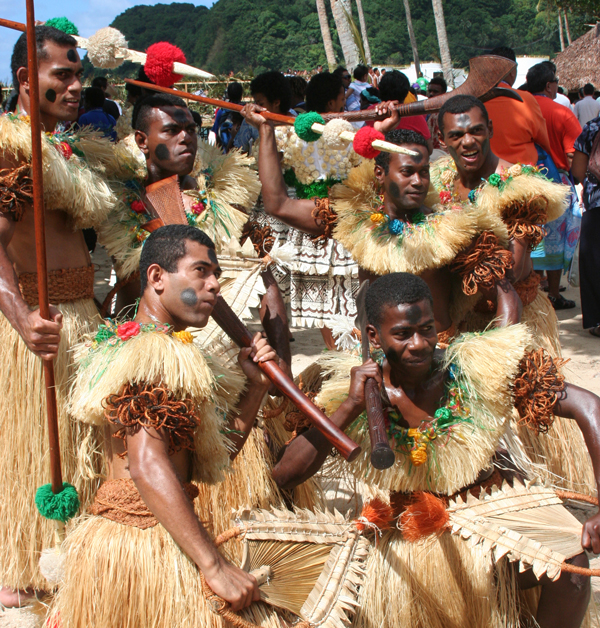The art of balancing cultural traditions with tourism
June 15, 2015
Fiji is rich in Indigenous cultural heritage and tradition. Within the past three decades, Fiji’s tourism has grown dramatically, overtaking traditional industries to become its main export sector. While the country depends on tourism for its growth and development, its creators are challenged to keep pace with demands for producing cultural arts products, and at the same time protect their work against the rise of counterfeit ‘knock offs’ being sold to tourists by retailers.
Viscopy was invited to present on the economic benefits of copyright and how it can help protect the continuation of traditional culture through art, as well as an overview of copyright law. A workshop was also facilitated with Fijian visual artists and arts teachers to discuss how to strengthen the Fijian visual arts sector and better support local artists so as to build resilience against the threats a booming tourism industry brings about.
“There were some great ideas that emerged from the workshops about how the Fijian arts community can practically address some of the issues that has eroded the value and respect for traditional cultural expressions,” Copyright Agency | Viscopy’s Indigenous Communications Coordinator Patricia (Trish) Adjei said.
“They identified a need to increase awareness and understanding of intellectual property law and creator’s rights in Fiji. An understanding of the social and economic impacts of infringements to the local and national cultural industries could also be a powerful message to understand the importance of buying authentically produced cultural goods.
“There are limited opportunities for Fijian visual artists to directly sell their works to art lovers and no independent organised advocacy bodies to help support them with education and legal advice. The formation of a collective society and body for visual artists, a national gallery to celebrate, display and sell traditional Fijian art and a centralised database for visual artists to register their works were all some of the ideas discussed at the workshop to help strengthen the local arts economy.
“Underpinning this is really about respect of traditional cultural expressions; the meaning, the story and depth of connection it inspires to do from the creator,” she said.
Fiji Cultural Industries training was delivered by the Secretariat of the Pacific Community (SPC), the Pacific Islands Forum Secretariat (PIFS), the Fiji Department of Heritage and Arts as well as the Fiji Arts Council as part of the Enhancing the Pacific Cultural Industries: Fiji, Samoa and Solomon Islands project. The project was made possible with the financial contribution of the European Union and the assistance of the ACP Group of States under the ACP Cultures + Programme.
SPC is looking to hold a similar workshop in the Samoa later this year as well as consultations on IP in Solomon Islands.


